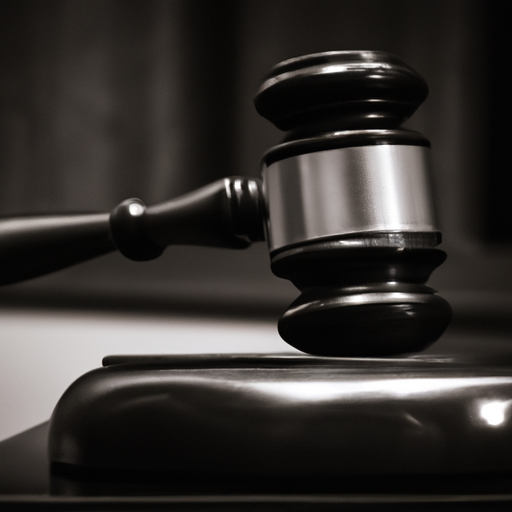In the world of criminal law, a criminal defense trial is a crucial event that can determine the fate of an individual facing criminal charges. As a criminal defense attorney, your expertise lies in providing strategic legal counsel and representation for those in need. This article will delve into the intricate details of a criminal defense trial, offering valuable insights and guidance to individuals in search of answers. By addressing common legal concerns and showcasing your experience through case studies and real-life scenarios, this article aims to instill confidence and encourage potential clients to take the next step in seeking your assistance. With a clear call-to-action at the end, readers will be prompted to contact you for a consultation and ultimately hire your services.
Criminal Defense Trial

Understanding the Criminal Defense Trial Process
A criminal defense trial is a legal proceeding that follows a set process to determine the guilt or innocence of an individual accused of committing a crime. It is essential to understand the various phases of a criminal defense trial to navigate the legal system effectively.
Pre-Trial Phase
-
Arrest: The first stage of the criminal defense trial process is the arrest, where law enforcement detains a person suspected of committing a crime. Following the arrest, the accused is informed of their rights and is usually taken into police custody.
-
Booking: After the arrest, the police proceed with the booking process. This includes taking the suspect’s fingerprints, photographs, and personal information. The individual is also searched, and their belongings are inventoried.
-
First Appearance: The first appearance before a judge occurs shortly after the arrest and booking. During this stage, the judge informs the accused of the charges against them and their rights, such as the right to an attorney.
-
Preliminary Hearing: A preliminary hearing is held to determine if there is sufficient evidence to proceed to trial. The prosecution presents their case, and the defense may challenge the evidence or present their own arguments.
-
Grand Jury Indictment: In some jurisdictions, a grand jury indictment is required before proceeding to trial for certain serious offenses. The grand jury reviews the evidence presented by the prosecution and decides if there is enough evidence to formally charge the accused.
-
Arraignment: At the arraignment, the accused is brought before the court, and they enter a plea of guilty or not guilty. During this phase, the court sets the trial date.

The Trial Phase
-
Jury Selection: The jury selection process is crucial as it determines who will serve as the fact-finders in the trial. The prosecution and defense attorneys question potential jurors to ensure a fair and impartial jury.
-
Opening Statements: After the jury selection, the trial begins with opening statements. The prosecution presents their case first, followed by the defense. Both sides provide an overview of their arguments and the evidence they intend to present.
-
Presentation of Evidence: During this phase, both the prosecution and defense present their evidence to support their respective claims. This can include witness testimony, forensic evidence, documents, and other exhibits.
-
Cross-Examination: After the presentation of evidence, the opposing side has the opportunity to cross-examine witnesses. This process aims to challenge the credibility and reliability of the witnesses and their testimony.
-
Closing Arguments: Closing arguments provide the opportunity for both sides to summarize their case and persuade the jury. Prosecution and defense attorneys present their final arguments, highlighting key points and evidence.
-
Jury Deliberation: Once the closing arguments are complete, the jury is sequestered to deliberate and reach a verdict. They consider the evidence presented and the instructions given by the judge.
-
Verdict and Sentencing: After deliberation, the jury delivers their verdict. If the defendant is found guilty, the judge proceeds with the sentencing phase, considering factors such as the nature of the crime and the defendant’s criminal history.
Appeals and Post-Trial Phase
-
Appeal Process: If the defendant is dissatisfied with the verdict, they have the option to appeal. The appeals process involves presenting legal arguments to a higher court, seeking to have the verdict overturned or the sentence modified.
-
Post-Trial Motions: Post-trial motions are legal requests made after a trial, typically aiming to challenge the verdict. These motions may request a new trial, challenge the legality of the conviction, or highlight errors made during the trial phase.
-
Sentence Modification: In certain situations, it may be possible to seek sentence modification after the trial. This could involve reducing the sentence, adjusting the conditions of probation, or exploring alternative sentencing options.
-
Expungement: Expungement is the process of erasing a criminal record or sealing it from public view. Depending on the jurisdiction and the nature of the offense, individuals may be eligible to have their criminal records expunged or sealed, providing them with a fresh start.

Frequently Asked Questions (FAQs) About Criminal Defense Trials
FAQ 1: How long does a criminal defense trial typically last? The length of a criminal defense trial can vary significantly depending on various factors, such as the complexity of the case, the number of witnesses, and the availability of the court. Some trials can be completed in a few days, while others may extend for several weeks or even months.
FAQ 2: Can a criminal defense attorney plea bargain on behalf of their client? Yes, a criminal defense attorney can negotiate a plea bargain on behalf of their client. Plea bargaining involves reaching an agreement with the prosecution to reduce the charges or secure a more favorable sentence in exchange for a guilty plea. However, the decision to accept a plea bargain ultimately rests with the accused.
FAQ 3: What happens if I am found guilty in a criminal defense trial? If you are found guilty in a criminal defense trial, the judge proceeds with the sentencing phase. The sentence may include penalties such as fines, probation, community service, or imprisonment, depending on the severity of the crime and other relevant factors.
FAQ 4: Can I appeal the verdict of my criminal defense trial? Yes, you can appeal the verdict of your criminal defense trial. The appeals process allows you to present legal arguments to a higher court, seeking to have the verdict overturned or the sentence modified. It’s important to consult with an experienced appellate attorney to navigate the complex appeals process properly.
FAQ 5: How can I find the best criminal defense attorney for my case? Finding the best criminal defense attorney for your case requires thorough research and consideration. Start by seeking recommendations from trusted sources, such as friends, family, or other professionals. Additionally, read reviews and testimonials, and consider the attorney’s experience, specialization, and track record in handling criminal defense cases.
Remember, facing criminal charges can be a daunting experience, and having the right legal representation is crucial. It is advisable to consult an experienced criminal defense attorney who can guide you through the trial process, protect your rights, and advocate for the best possible outcome in your case. Contact our law firm today for a consultation and let us help you navigate the complexities of the criminal defense trial process.



